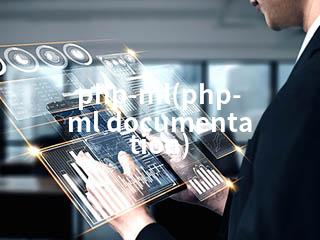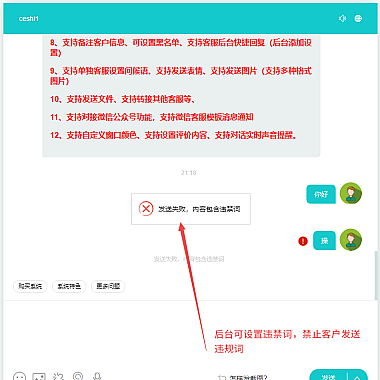php-ml(php-ml documentation)
PHP-ML Documentation: A Comprehensive Guide to Machine Learning in PHP
PHP-ML is a powerful machine learning library designed specifically for PHP developers. With its user-friendly interface and extensive documentation, PHP-ML is a popular choice for developers looking to integrate machine learning into their PHP applications. In this article, we will explore six key aspects of PHP-ML, including its features, algorithms, data preprocessing, model evaluation, model selection, and deployment.
Features
PHP-ML offers a wide range of features that make it a versatile tool for machine learning in PHP. Some of its key features include:
- Support for various machine learning algorithms, including decision trees, k-nearest neighbors, naive Bayes, and support vector machines.
- Easy integration with other PHP libraries and frameworks, such as Laravel and Symfony.
- Support for data preprocessing techniques, such as feature scaling and normalization.
- Built-in tools for model evaluation and selection, including cross-validation and grid search.
- Support for both supervised and unsupervised learning.
- Compatibility with various data formats, including CSV, JSON, and XML.
Algorithms
PHP-ML supports a wide range of machine learning algorithms, each with its own strengths and weaknesses. Some of the most commonly used algorithms include:
- Decision trees: A popular algorithm for classification problems that uses a tree-like model to make decisions based on input features.
- K-nearest neighbors: A simple algorithm that classifies data points based on their proximity to other data points in the dataset.
- Naive Bayes: A probabilistic algorithm that calculates the likelihood of each class based on the input features.
- Support vector machines: A powerful algorithm that can handle both linear and non-linear classification problems.
Data Preprocessing
Before training a machine learning model, it is important to preprocess the data to ensure that it is in a suitable format for the algorithms. PHP-ML offers a range of data preprocessing techniques, including:
- Feature scaling: A technique for scaling input features to a similar range to prevent some features from dominating others.
- Normalization: A technique for scaling input features to a range of 0 to 1 to prevent some features from dominating others.
- Data imputation: A technique for filling in missing data values with estimated values based on the available data.
Model Evaluation
Once a machine learning model has been trained, it is important to evaluate its performance to determine its accuracy and effectiveness. PHP-ML offers a range of model evaluation techniques, including:
- Cross-validation: A technique for testing the model on multiple subsets of the data to ensure that it is not overfitting to a particular subset.
- Confusion matrix: A table that shows the number of true positives, true negatives, false positives, and false negatives in the model's predictions.
- ROC curve: A graph that shows the trade-off between true positive rate and false positive rate for different classification thresholds.
Model Selection
With so many machine learning algorithms available, it can be difficult to determine which one is best suited for a particular problem. PHP-ML offers a range of tools for model selection, including:
- Grid search: A technique for testing different combinations of hyperparameters to find the best combination for a particular algorithm.
- Random search: A technique for testing random combinations of hyperparameters to find the best combination for a particular algorithm.
- Performance metrics: A range of metrics, such as accuracy, precision, and recall, that can be used to compare the performance of different algorithms.
Deployment
Once a machine learning model has been trained and evaluated, it is important to deploy it in a way that is scalable and efficient. PHP-ML offers a range of deployment options, including:
- Integration with web frameworks, such as Laravel and Symfony, to make it easy to deploy models in web applications.
- Exporting models in various formats, such as JSON and XML, to make it easy to deploy models in different environments.
- Support for parallel processing to make it easy to scale up the deployment of models in high-traffic applications.
Conclusion
PHP-ML is a powerful machine learning library that offers a wide range of features, algorithms, data preprocessing techniques, model evaluation tools, model selection techniques, and deployment options. With its user-friendly interface and extensive documentation, PHP-ML is a popular choice for developers looking to integrate machine learning into their PHP applications. Whether you are a seasoned machine learning expert or a beginner looking to get started with machine learning in PHP, PHP-ML is a versatile and powerful tool that can help you achieve your goals.
(本文地址:https://www.nzw6.com/21887.html)











